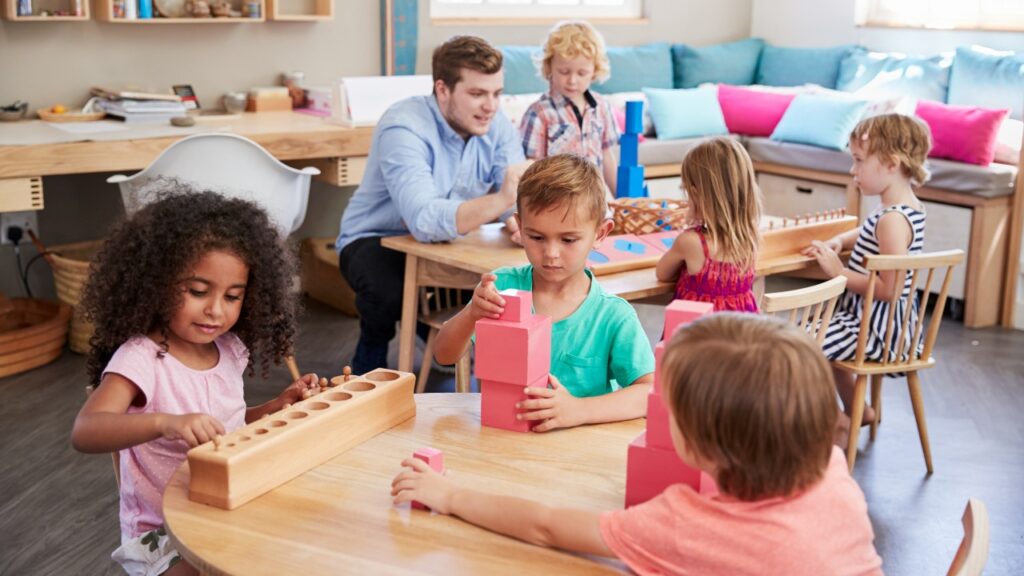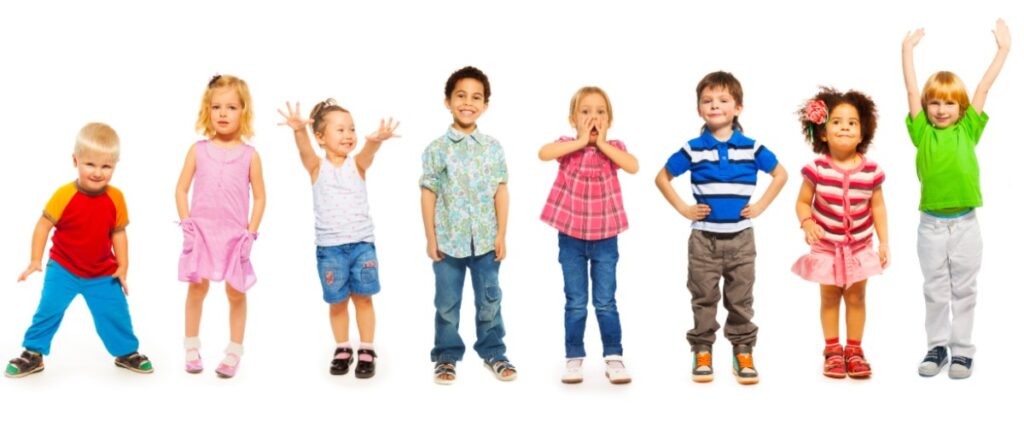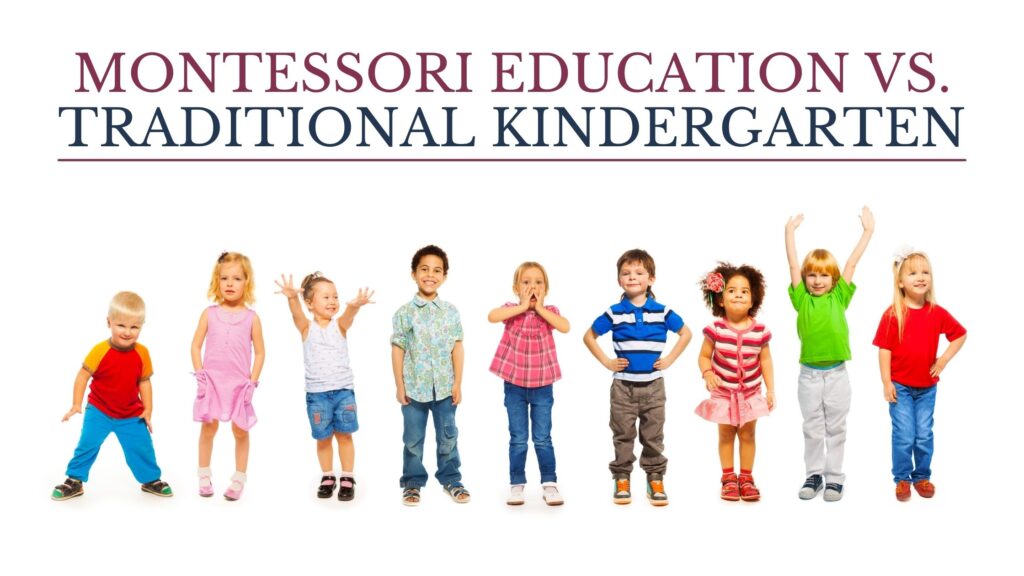The goal of any program for early education is to provide quality learning experiences for children. Since we can all agree that the first five years of a child’s life are key to their development, it is important to understand the differences between the approaches of each program.

Traditional kindergarten classrooms in Ontario focus on play-based learning, which underscores the benefits and importance of play in setting the stage for child development. Through teacher-led activities designed for exploration and investigation, students develop a foundation of learning. In Montessori classes, children work within a prepared environment. The curriculum is divided into five subject areas: Language, Mathematics, Culture, Practical Life, and Sensorial, with materials supporting the learning. This prepared environment is designed to facilitate each child’s unique development, with activities ranging from simple to complex, concrete to abstract. The prepared environment in the Montessori classroom fosters independent learning and exploration, with guidance from the directress.
Another notable difference is that in the Montessori environment, the learning is student-directed instead of curriculum-driven in a traditional kindergarten setting. In a Montessori Casa class, every child is learning at their own pace. Instead of a singular pathway, often associated with the traditional kindergarten program, each Montessori student works at their own individual level, thereby allowing students the opportunity to take the time they need to
develop their own skills, and continue learning without limits.
Age is also a factor of consideration. Traditional kindergarten classes are divided by age. At four years old, children enter Junior Kindergarten, and progress to Senior Kindergarten at five. The Montessori environment instead offers mixed-age groupings within the Casa classes. In addition to providing peer learning opportunities, children are also given the chance to develop leadership skills by acting as mentors. The Montessori environment provides the ideal opportunity for children to take responsibility and become role models for their peers.
While both learning styles are quite different, understanding those differences is an important first step for parents deciding between a traditional kindergarten or a Montessori school.



